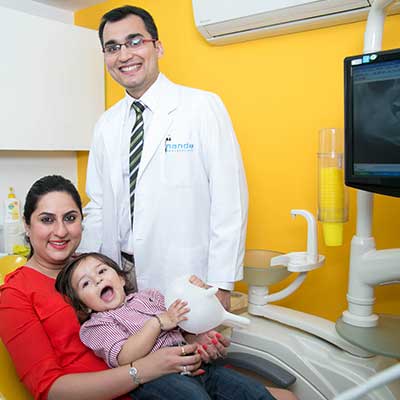Pregnancy is an exciting journey filled with changes, and while you’re focusing on your health and your baby’s well-being, your oral health may not be top of mind. However, maintaining a healthy mouth during pregnancy is vital—not only for your smile but also for your baby’s development. Here’s what you need to know about the connection between pregnancy and oral health.
How Does Pregnancy Affect Oral Health?
Hormonal changes during pregnancy can significantly impact your oral health, increasing the risk of certain dental issues. Some common concerns include:
- Pregnancy Gingivitis
- What it is: This is inflammation of the gums, characterized by redness, swelling, and bleeding, especially during brushing or flossing.
- Why it happens: Elevated hormone levels can make your gums more sensitive to plaque buildup, leading to gingivitis.
- Why it matters: If left untreated, gingivitis can progress to periodontitis, a more severe form of gum disease.
- Increased Risk of Cavities
- Morning sickness: Frequent vomiting due to nausea can expose your teeth to stomach acid, eroding enamel and increasing the risk of decay.
- Cravings and snacking: Many pregnant women experience cravings for sugary or carb-rich foods, which can lead to more frequent plaque buildup.
- Pregnancy Tumors
- What it is: These are non-cancerous growths that may develop on the gums, often in the second trimester.
- Why it happens: They’re believed to be linked to hormonal changes and irritation from plaque. They usually disappear after delivery but should still be monitored.
- Connection to Preterm Birth
- Studies suggest a link between untreated gum disease and preterm, low-birth-weight babies. While the exact cause isn’t fully understood, it underscores the importance of maintaining oral health during pregnancy.
Tips for Maintaining Oral Health During Pregnancy
- Visit Your Dentist Regularly
- Schedule a dental checkup early in your pregnancy to address any existing issues and ensure your teeth and gums are in good shape. Routine cleanings and exams are safe during pregnancy.
- Brush and Floss Daily
- Brush your teeth twice a day with fluoride toothpaste and floss daily to remove plaque and reduce the risk of gingivitis.
- Combat Morning Sickness
- Rinse your mouth with water or a mixture of water and baking soda after vomiting to neutralize stomach acid. Avoid brushing immediately afterward to prevent further enamel damage.
- Watch Your Diet
- Limit sugary snacks and opt for teeth-friendly foods like cheese, yogurt, and fresh fruits and vegetables. Drink plenty of water to keep your mouth hydrated.
- Be Open About Symptoms
- Let your dentist know if you’re experiencing unusual symptoms like persistent gum bleeding or tooth sensitivity. These could signal an underlying issue.
Is Dental Treatment Safe During Pregnancy?
Yes, most dental treatments are safe during pregnancy, and some are even necessary to protect your health.
- Second trimester: This is often the best time for routine dental work since nausea from the first trimester has usually subsided, and you’ll still be comfortable before the third trimester.
- X-rays: Modern digital X-rays emit very low radiation levels and are safe when necessary. Lead aprons are used to protect you and your baby.
- Emergency treatments: If you have a severe cavity, infection, or other urgent issue, don’t delay treatment—it’s better for you and your baby to address it promptly.
The Bottom Line
Your oral health plays a vital role in your overall well-being and your baby’s development. By staying proactive about dental care, you can reduce the risk of complications and ensure a healthy, happy pregnancy. Don’t hesitate to reach out to your dentist with any concerns—after all, a healthy smile is part of a healthy pregnancy!


